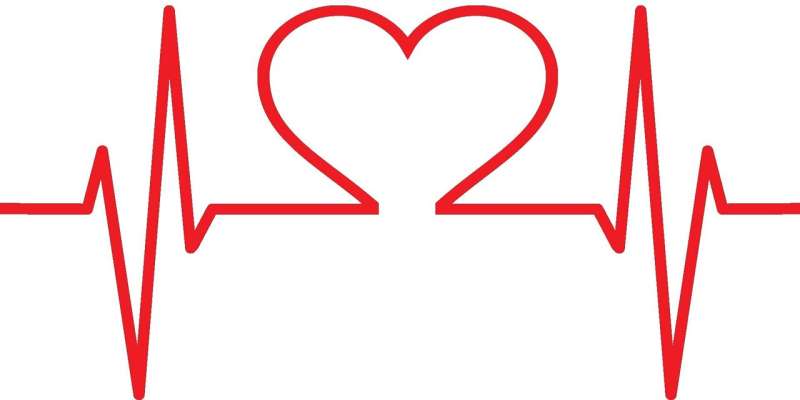International study finds heart inflammation rare among people hospitalized with COVID-19

Acute myocarditis, inflammation of the heart muscle typically triggered by a virus, occurred in about two out of every 1,000 people hospitalized with COVID-19, and was associated with more severe illness and complications in people with COVID-19, especially among people who also had pneumonia, according to new research published today in the American Heart Association's journal Circulation.
Myocarditis is a rare but serious condition that causes inflammation of the heart muscle. It can weaken the heart and its electrical system, and it can make it difficult for the heart to pump blood. An episode of myocarditis may resolve on its own or with treatment or may result in long-lasting damage.
"While COVID-19 is a virus that predominantly leads to acute respiratory illness, there has been a small group of individuals who also experience cardiac complications," said Enrico Ammirati, M.D., Ph.D., co-lead author of the study and a cardiologist at De Gasperis Cardio Center and Transplant Center at Niguarda Hospital in Milan, Italy. "A small study previously indicated acute myocarditis is a rare occurrence in people infected with COVID-19. Our analysis of international data offers better insight to the occurrence of acute myocarditis during COVID-19 hospitalization, particularly before the COVID-19 vaccines were widely available."
The international study examined health data for almost 57,000 people who were hospitalized with COVID-19 from February 2020 until April 2021, and who received care at 23 hospitals across the United States and Europe.
Within the large study group, a total of 54 people hospitalized with COVID-19 were identified as having definite or probable acute myocarditis, based upon results of heart muscle biopsy and/or magnetic resonance imaging. Most of the people in this study were non-Hispanic white adults (76.5%), with an average age of 38 years, and more than half were male (61%). All had confirmed cases of COVID-19 infection based upon standard laboratory testing, and none had received a COVID-19 vaccination prior to developing myocarditis.
The study analysis found:
- An estimated 2.4 per 1,000 people hospitalized for COVID-19 had acute myocarditis.
- Acute myocarditis occurred more frequently in people who did not have pneumonia (57.4%) and was complicated by abnormal or unstable blood flow (hemodynamic instability) in 32% of cases.
- The people found to have both COVID-19-related acute myocarditis and pneumonia had a mortality rate of 15.1%, compared to no deaths during hospitalization in the people who did not have pneumonia. The people with pneumonia were older than those without pneumonia (average age of 45 years vs. 30 years, respectively).
- One in five of the people with confirmed myocarditis (20.4%), most of whom also had pneumonia, needed mechanical support for circulation or died while in the hospital.
- Twenty-one individuals (38.9%) had fulminant (severe and/or sudden) acute myocarditis, and due to shock, they needed immediate medication support and mechanical circulatory support.
The authors note the potential rate of COVID-19 related myocarditis may be between 1.2-5.7 per 1,000 people hospitalized for COVID-19. Some people were identified with possible myocarditis based on preliminary testing, yet they were not included in the final analysis because they did not meet all of the study's protocols.
"This analysis indicates that, although rare, hospitalized patients with acute myocarditis associated with COVID-19 infection have a much greater need for intensive care unit admission, in up to 70.5% of the cases, despite the average age of the individuals in the study being much younger than expected at 38 years old," said co-lead study author Marco Metra, M.D., a cardiology professor at the Institute of Cardiology and in the department of medical and surgical specialties, radiological sciences and public health at the University of Brescia in Brescia, Italy.
The study has several limitations. Because the analysis was retrospective, there may have been some potential selection bias. Additionally, 43 individuals with possible acute myocarditis were excluded due to a lack of imaging or biopsy information. People older than 70 years of age were also not included because of a higher chance of age-related cardiac issues visible on magnetic resonance imaging. Some people were not screened for other viruses or immunological causes of myocarditis, so there may have been other contributing factors. Further, in some of the hospitals that were heavily hit early in the pandemic, some people with acute myocarditis may have been missed.
More information: Enrico Ammirati et al, Prevalence, Characteristics, and Outcomes of COVID-19–Associated Acute Myocarditis, Circulation (2022). DOI: 10.1161/CIRCULATIONAHA.121.056817





















